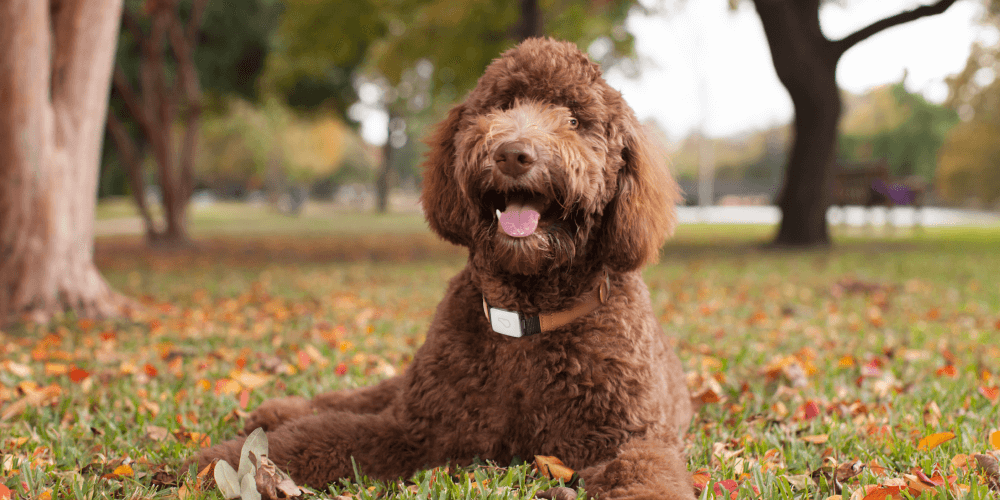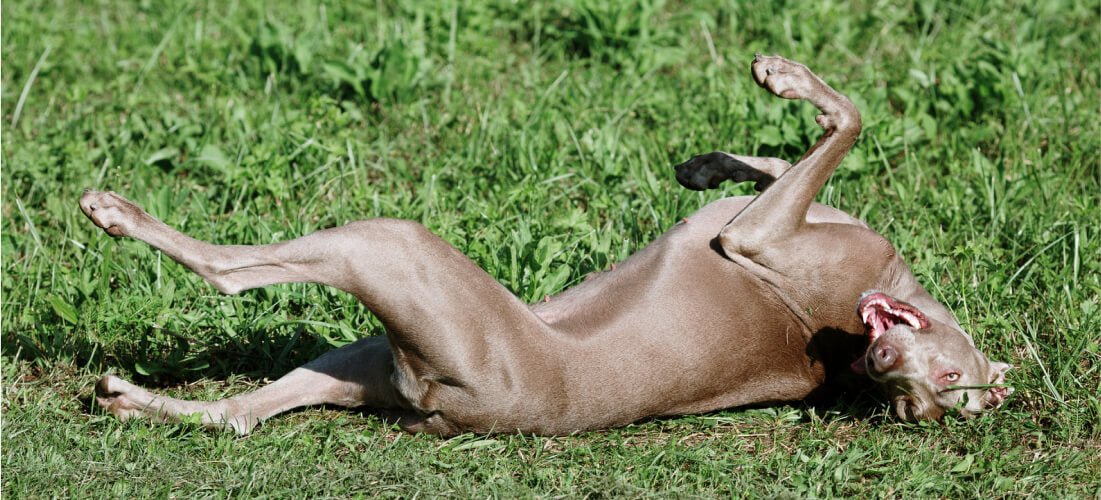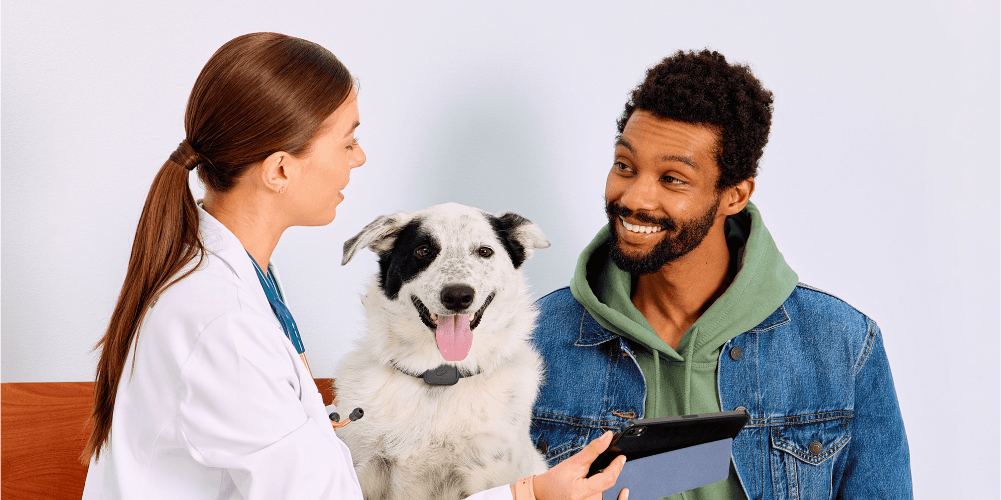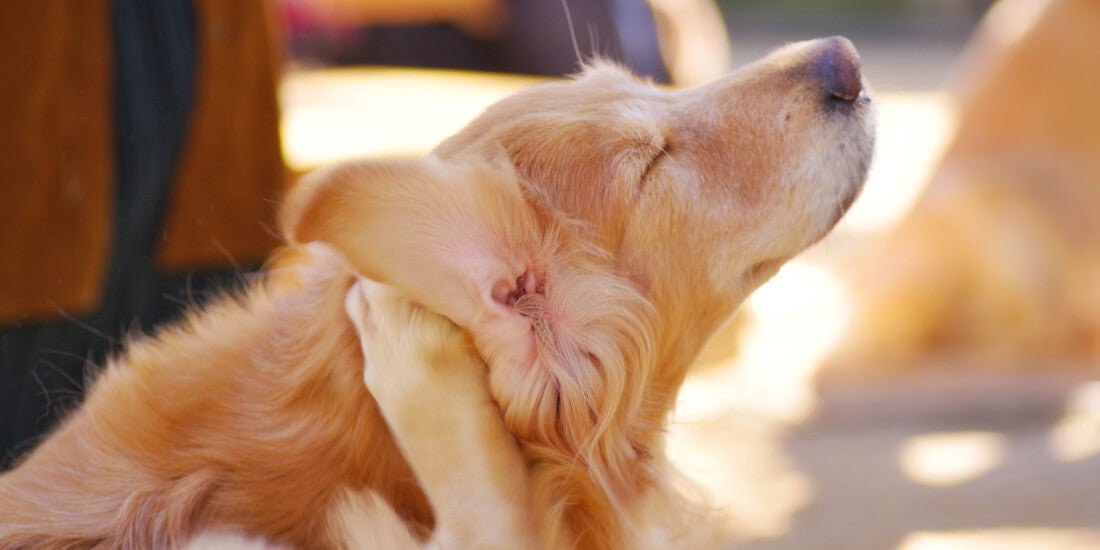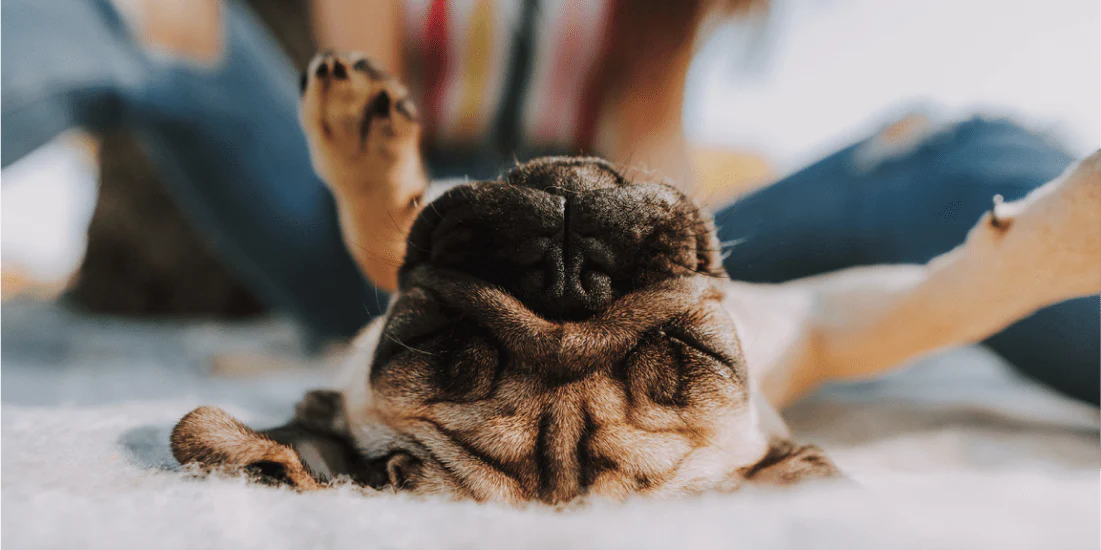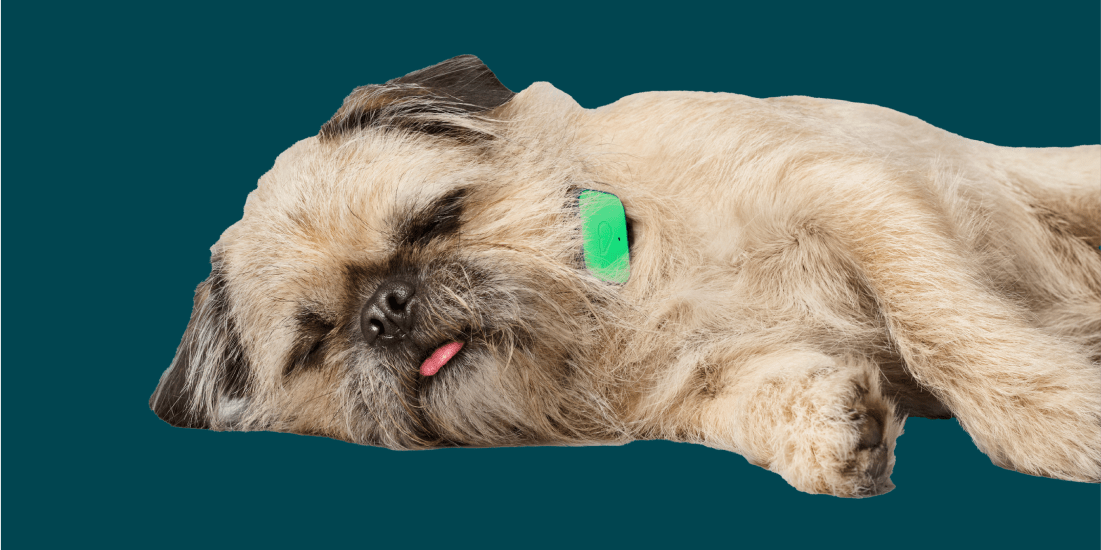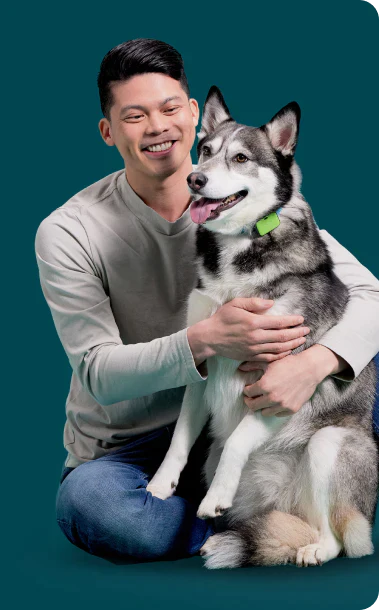Solved! This is how much sleep your dog actually needs
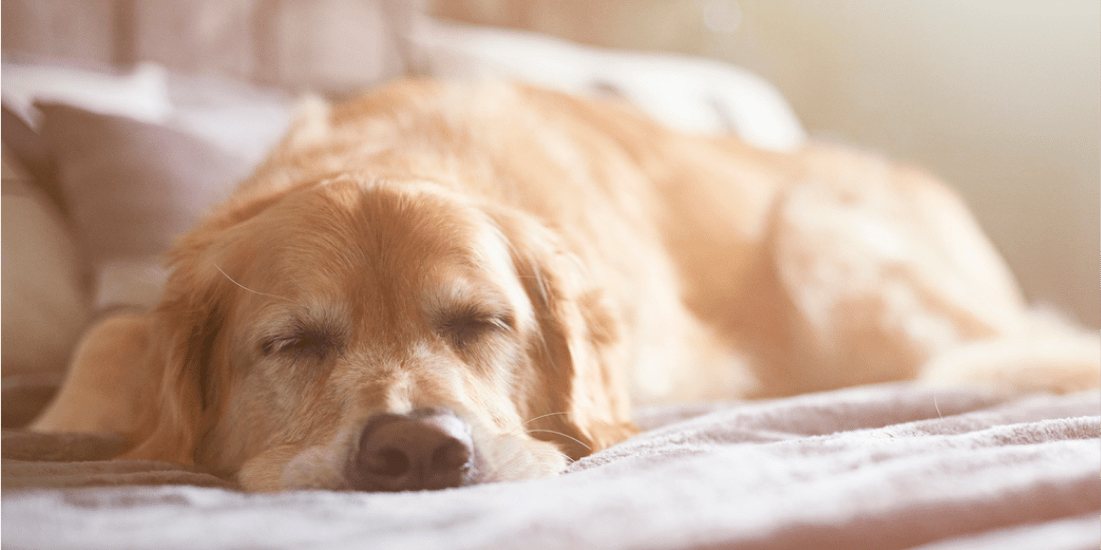
Do you ever look over lovingly at your fur baby snoozing the day away (again) and think: why do dogs sleep so much, anyway?
It turns out, your best friend is pretty much built for regular naps, and their shut-eye has more in common with yours than you might expect. Here, we asked two veterinarians to weigh in on why dogs sleep so much and what your dog’s sleep can tell you about their overall health.
Heads up: You can actually track your dog’s sleep right from the Whistle app, which tells you how many hours of sleep they’re getting, how many disruptions they’re getting per night, and how this all compares to their nightly average of sleep hours (baseline), and changes to which might point to potential health issues.

So, how much sleep do dogs need?
Dr. Elizabeth Shines, DVM, Digital Health Associate Veterinarian at Kinship, explains that dogs sleep an average of 12-14 hours a day. Tough life, huh?
It’s just the way they’re built, really—dogs need more sleep than humans. “During sleep, that’s when your [dog’s] body regenerates and repairs,” says Dr. Shines. Sleep helps boost the immune system, speeds healing, and gives their brain a rest.
Pets with health conditions or who are overweight tend to sleep more, but age and situational factors can also impact their snoozing patterns. Let’s get into some specifics.
How much do puppies sleep?
You’ve probably noticed that most puppies are certified professional nappers. That’s because puppies are growing quickly and need more sleep, sometimes up to 20 hours a day, Dr. Shines says. So keep in mind that if you have a house full of kids (or adults!) who want to play with the puppy round the clock, it’s important to give your pet some quiet time to recharge, too.
But what if your puppy seems to be up all night whining? That can happen for a few reasons, but should (hopefully) resolve with time. “It’s a lot more likely for a younger dog, a foster dog, or a rescue to have an interrupted sleep pattern,” says Dr. John Iovino, DVM, Digital Health Associate Veterinarian at Kinship. That’s because dogs are very routine-based, and any disruption to that can stress them out. Give your pup some time to adjust, and they should be sleeping through the night soon enough.
That said, sometimes puppies just can’t hold it through the night—so if your little fur baby is suddenly whining at 2 A.M., they might be asking for a potty break.
Dr. Shines says most of these issues resolve themselves within two to four weeks. Unless there’s some kind of underlying disease keeping your dog up at night, a little bit of training—and getting used to your home—should do the trick.
Why it’s smart to keep tabs on your dog’s sleep
The short answer: Because you care about that little floofer! Changes in the quality or quantity of your dog’s sleep can be a tip-off to tons of different things, from a disrupted routine to a health condition. The Whistle app tracks your dog’s sleep patterns so that you’ll be the first to know if something is disturbing their precious slumber.
So, what might be at the root of your dog’s sleep issues? Dr. Iovino explains that health conditions like kidney disease and diabetes can make your dog very thirsty and need to pee multiple times a night, which can disturb their sleep. Or if your pup is relentlessly itching—whether it’s from allergies or a skin disease—that can also keep them awake at night. If your dog’s sleep has been off lately, take a look at other aspects of their health in the Whistle app to see if that might be the cause.
“I’m not sure that dogs can actually sleep too much,” Dr. Shines says. Senior dogs sleep more than younger dogs, and overweight dogs tend to like to snooze often, but dogs also may sleep more if they’re in pain. If you notice a sudden shift in how much your dog is sleeping, it’s worth talking to your veterinarian. Arthritis, endocrine issues, and even boredom can all be culprits, she says.
It’s always worth checking in with your veterinarian if you’re concerned. They may be able to spot other clues, like signs of pain, that hadn’t stuck out to you. And remember, if you want answers right away, Whistle customers can tap the Chat with a Vet feature right from the app.
Whistle tip: For more expert answers to those burning pet parent questions like "why do dogs eat grass?" explore IAMS.
--
Colleen Stinchcombe is a freelance writer with two dogs. She writes about pets for Whistle Labs, Rover, and Woman’s Day.



